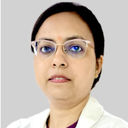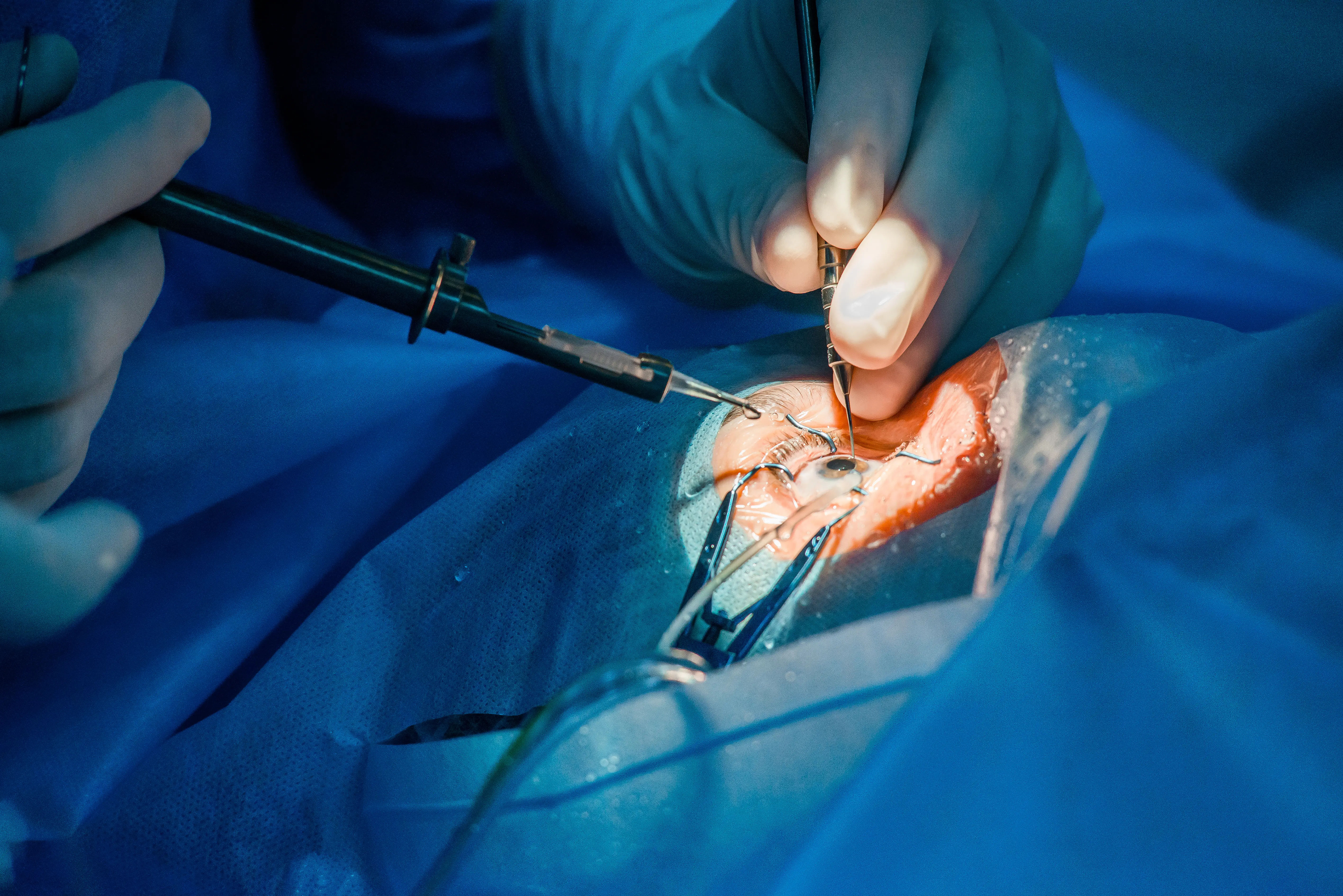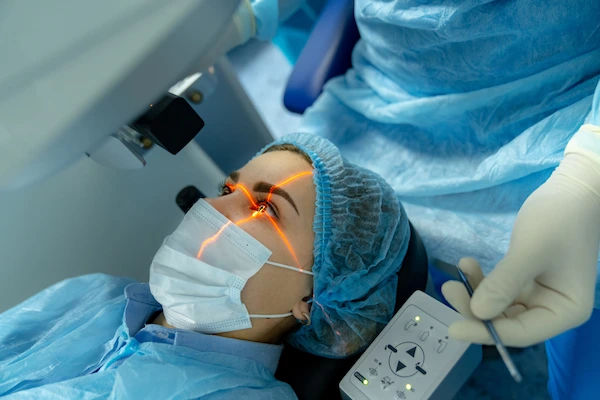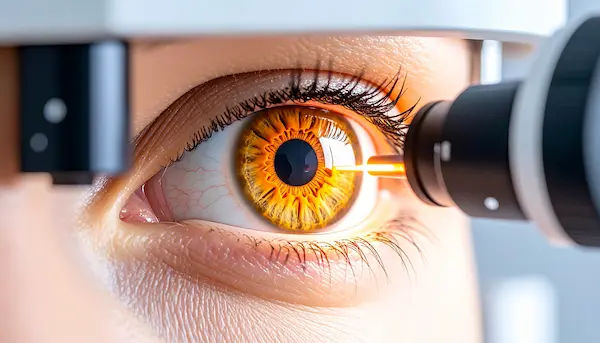10 Common Eye Diseases Explained
Discover the 10 most common eye diseases, including glaucoma, cataracts, and dry eyes. Learn their symptoms, causes, and available treatments to protect your vision and eye health.

Written by Dr. D Bhanu Prakash
Reviewed by Dr. Rohinipriyanka Pondugula MBBS
Last updated on 13th Jan, 2026

Introduction
Our eyes are one of the most precious gifts, allowing us to see and experience the world. However, like any other part of the body, they can be affected by various diseases. Some eye conditions are minor and easily treatable, while others can lead to serious vision problems if left unchecked.
In this article, we’ll discuss 10 common eye diseases, their symptoms, causes, and how they can affect your vision. We’ll also share some helpful tips to protect your eyes and when to seek medical help.
1. Cataracts
Here are the details about cataract,
What is it?
A cataract is a clouding of the eye's natural lens, which leads to blurry or dim vision. It usually develops slowly and is common in older adults.
Symptoms:
Below are the symptoms for cataract,
Blurry or foggy vision
Difficulty seeing at night
Sensitivity to light
Fading of colors
Causes & Risk Factors:
Below are the causes and risk factors for cataract,
Aging (most common cause)
Diabetes
Smoking
Prolonged UV exposure
How to Manage It?
Below are the ways to manage cataract,
Wear sunglasses to protect against UV rays.
Eat a diet rich in antioxidants (leafy greens, fruits).
Surgery is the most effective treatment to replace the cloudy lens with an artificial one.
2. Glaucoma
Here are the details about Glaucoma,
What is it?
Glaucoma is a group of eye conditions that damage the optic nerve, often due to high eye pressure. If untreated, it can lead to permanent vision loss.
Symptoms:
Below are the symptoms for glaucoma,
Gradual loss of peripheral (side) vision
Severe eye pain (in acute cases)
Headaches and nausea
Blurred vision
Causes & Risk Factors:
Below are the causes and risk factors for glaucoma,
High eye pressure
Family history of glaucoma
Age (over 60)
Diabetes or high blood pressure
How to Manage It?
Below are the ways to manage glaucoma,
Regular eye check-ups (especially after 40).
Use prescribed eye drops to reduce pressure.
Early treatment can prevent vision loss.
Consult Top Specialists for Personalised Tips
3. Age-Related Macular Degeneration (AMD)
Here are the details about AMD,
What is it?
AMD affects the macula (central part of the retina), leading to loss of central vision needed for reading and recognizing faces.
Symptoms:
Here are the symptoms of AMD,
Blurry or distorted central vision
Difficulty reading or recognizing faces
Dark spots in vision
Causes & Risk Factors:
Here are the causes and risk factors of AMD,
Aging (most common in people over 50)
Smoking
Genetics
How to Manage It?
Here are the ways to manage AMD,
Eat foods rich in lutein (spinach, kale).
Quit smoking.
Regular eye exams for early detection.
4. Diabetic Retinopathy
Here are the details about Diabetic Retinopathy,
What is it?
A complication of diabetes that damages the blood vessels in the retina, leading to vision loss.
Symptoms:
Here are the symptoms of Diabetic Retinopathy,
Blurry or fluctuating vision
Dark spots or floaters
Poor night vision
Causes & Risk Factors:
Here are the causes and risk factors of Diabetic Retinopathy,
Poorly controlled diabetes
High blood pressure
How to Manage It?
Here are the ways to manage Diabetic Retinopathy,
Keep blood sugar levels under control.
Regular eye screenings if you have diabetes.
Laser treatment can help in advanced cases.
5. Dry Eye Syndrome
Here are the details about dry eye syndrome,
What is it?
A condition where the eyes don’t produce enough tears or the tears evaporate too quickly, causing discomfort.
Symptoms:
Here are the symptoms of dry eye syndrome,
Burning or stinging sensation
Redness
Sensitivity to light
Causes & Risk Factors:
Here are the causes and risk factors of dry eye syndrome,
Aging
Screen overuse (computer/phone)
Dry or windy climates
How to Manage It?
Here are the ways to manage dry eye syndrome,
Use artificial tears.
Take breaks from screens (20-20-20 rule: every 20 minutes, look 20 feet away for 20 seconds).
Stay hydrated.
6. Conjunctivitis (Pink Eye)
Here are the details about Conjunctivitis,
What is it?
An infection or inflammation of the conjunctiva (the thin, clear layer covering the white part of the eye).
Symptoms:
Here are the symptoms of conjunctivitis,
Redness
Itching or burning
Watery or sticky discharge
Causes & Risk Factors:
Here are the causes and risk factors of conjunctivitis
Bacterial or viral infection
Allergies
Irritants (smoke, chlorine)
How to Manage It?
Here are the ways to manage conjunctivitis
Avoid touching eyes.
Use warm compresses for relief.
See a doctor if symptoms worsen.
7. Refractive Errors (Myopia, Hyperopia, Astigmatism)
Here are the details about Refractive Errors,
What is it?
Common vision problems where the eye doesn’t focus light properly, causing blurry vision.
Symptoms:
Here are the symptoms of Refractive Errors,
Blurry vision (near or far)
Headaches
Eye strain
Causes & Risk Factors:
Here are the causes and risk factors of Refractive Errors,
Genetics
Aging (presbyopia after 40)
How to Manage It?
Here are the ways to manage Refractive Errors,
Wear glasses or contact lenses.
LASIK surgery is an option for some.
8. Stye (Hordeolum)
Here are the details about Stye,
What is it?
A painful red bump near the eyelid caused by a blocked oil gland.
Symptoms:
Here are the symptoms of Stye,
Swelling and tenderness
Redness
Crusting around the eyelid
Causes & Risk Factors:
Here are the causes and risk factors of Stye,
Bacterial infection
Poor eyelid hygiene
How to Manage It?
Here are the ways to manage Stye,
Apply warm compresses.
Avoid squeezing it.
9. Retinal Detachment
Here are the details about Retinal Detachment,
What is it?
A serious condition where the retina pulls away from its normal position, leading to vision loss.
Symptoms:
Here are the symptoms of Retinal Detachment,
Sudden flashes of light
Floaters
Dark curtain over vision
Causes & Risk Factors:
Here are the causes and risk factors of Retinal Detachment,
Eye injury
Severe nearsightedness
How to Manage It?
Seek emergency care if symptoms appear.
10. Blepharitis
Here are the details about Blepharitis,
What is it?
Inflammation of the eyelids, often due to clogged oil glands.
Symptoms:
Here are the symptoms of Blepharitis,
Red, swollen eyelids
Crusty eyelashes
Itchy or burning sensation
How to Manage It?
Here are the ways to manage Blepharitis,
Clean eyelids gently with warm water.
Use doctor-recommended ointments.
When to See a Doctor?
If you experience:
Sudden vision loss
Severe eye pain
Persistent redness or irritation
Early detection and treatment can save your vision!
Need an eye check-up? Book a consultation with an eye specialist on Apollo 24|7 today!
Final Tips for Healthy Eyes
Below are few tips for healthy eyes,
Eat a balanced diet (carrots, fish, leafy greens).
Wear sunglasses outdoors.
Take breaks from screens.
Get regular eye exams.
Conclusion
Understanding the most common eye diseases can help you recognize early warning signs and seek timely care. While some conditions are age-related or genetic, many can be managed or even prevented with regular eye exams, proper hygiene, and healthy lifestyle choices.
Consult Top Specialists
Consult Top Specialists for Personalised Tips

Dr. Mridula V Amarnath
Ophthalmologist
12 Years • MBBS,MS (Opthalomology)
Bengaluru
Apollo Medical Center, Marathahalli, Bengaluru

Dr. Zennat Tajmin Shah
Ophthalmologist
24 Years • MBBS,DNB (Ophthalmology)
Kolkata
Titanium Eye Care, Kolkata

Dr. Shivani Grover
Ophthalmologist
9 Years • MS (Ophthalmology), Fellowship Cataract, Squint & Paediatric Ophthalmology
Lucknow
Apollomedics Super Speciality Hospital, Lucknow

Dr. Smita Gaurav Gujarathi
Ophthalmologist
4 Years • MBBS DNB (Opthal)
Nashik
Apollo Hospitals Nashik, Nashik

Dr. Sujit Pahari
Ophthalmologist
22 Years • MBBS, DNB, DOMS Ophthalmologist/ Eye Surgeon. FIC (Ophthal).
Bilaspur
Apollo Hospitals Seepat Road, Bilaspur
(25+ Patients)
Consult Top Specialists

Dr. Mridula V Amarnath
Ophthalmologist
12 Years • MBBS,MS (Opthalomology)
Bengaluru
Apollo Medical Center, Marathahalli, Bengaluru

Dr. Zennat Tajmin Shah
Ophthalmologist
24 Years • MBBS,DNB (Ophthalmology)
Kolkata
Titanium Eye Care, Kolkata

Dr. Shivani Grover
Ophthalmologist
9 Years • MS (Ophthalmology), Fellowship Cataract, Squint & Paediatric Ophthalmology
Lucknow
Apollomedics Super Speciality Hospital, Lucknow

Dr. Smita Gaurav Gujarathi
Ophthalmologist
4 Years • MBBS DNB (Opthal)
Nashik
Apollo Hospitals Nashik, Nashik

Dr. Sujit Pahari
Ophthalmologist
22 Years • MBBS, DNB, DOMS Ophthalmologist/ Eye Surgeon. FIC (Ophthal).
Bilaspur
Apollo Hospitals Seepat Road, Bilaspur
(25+ Patients)



